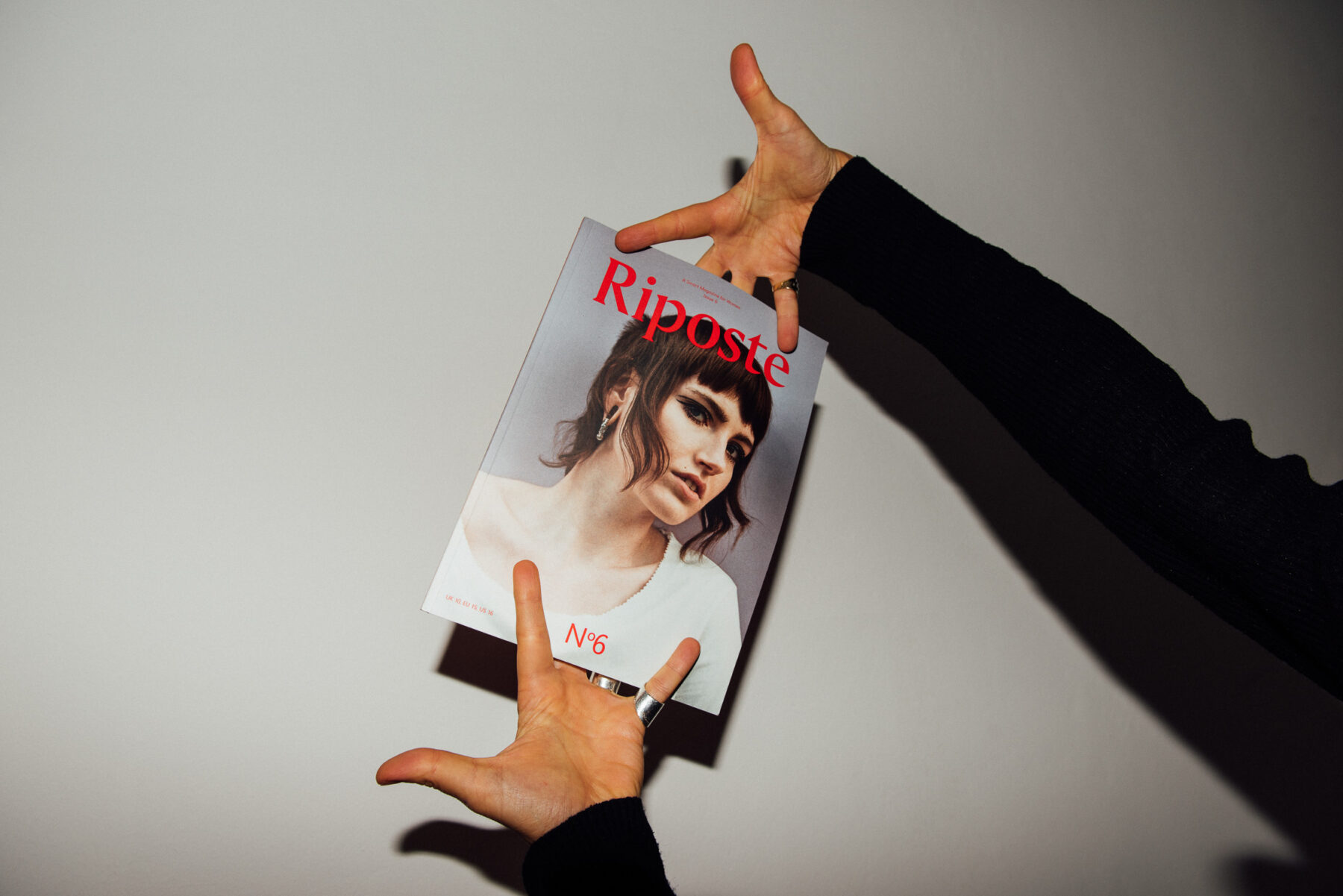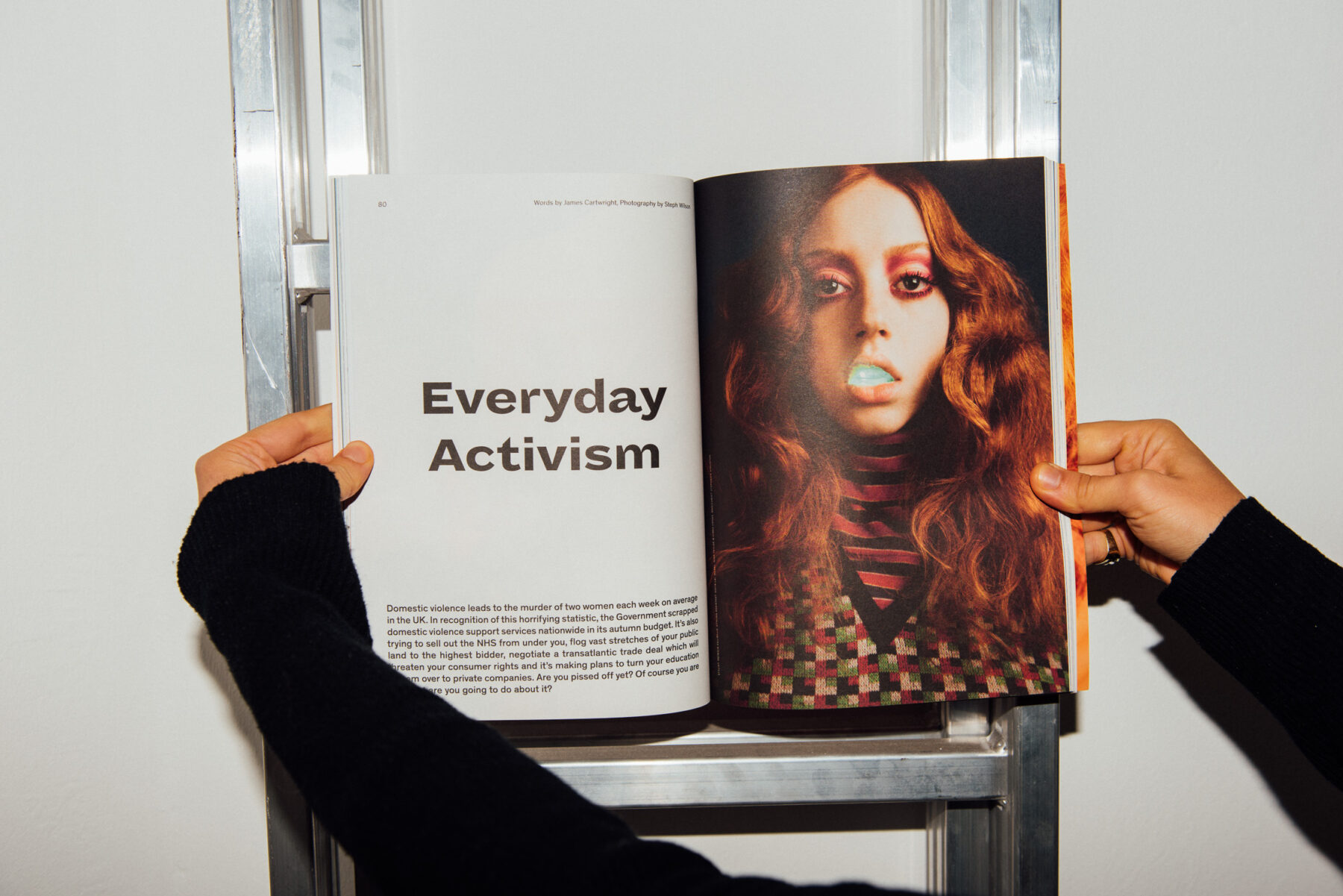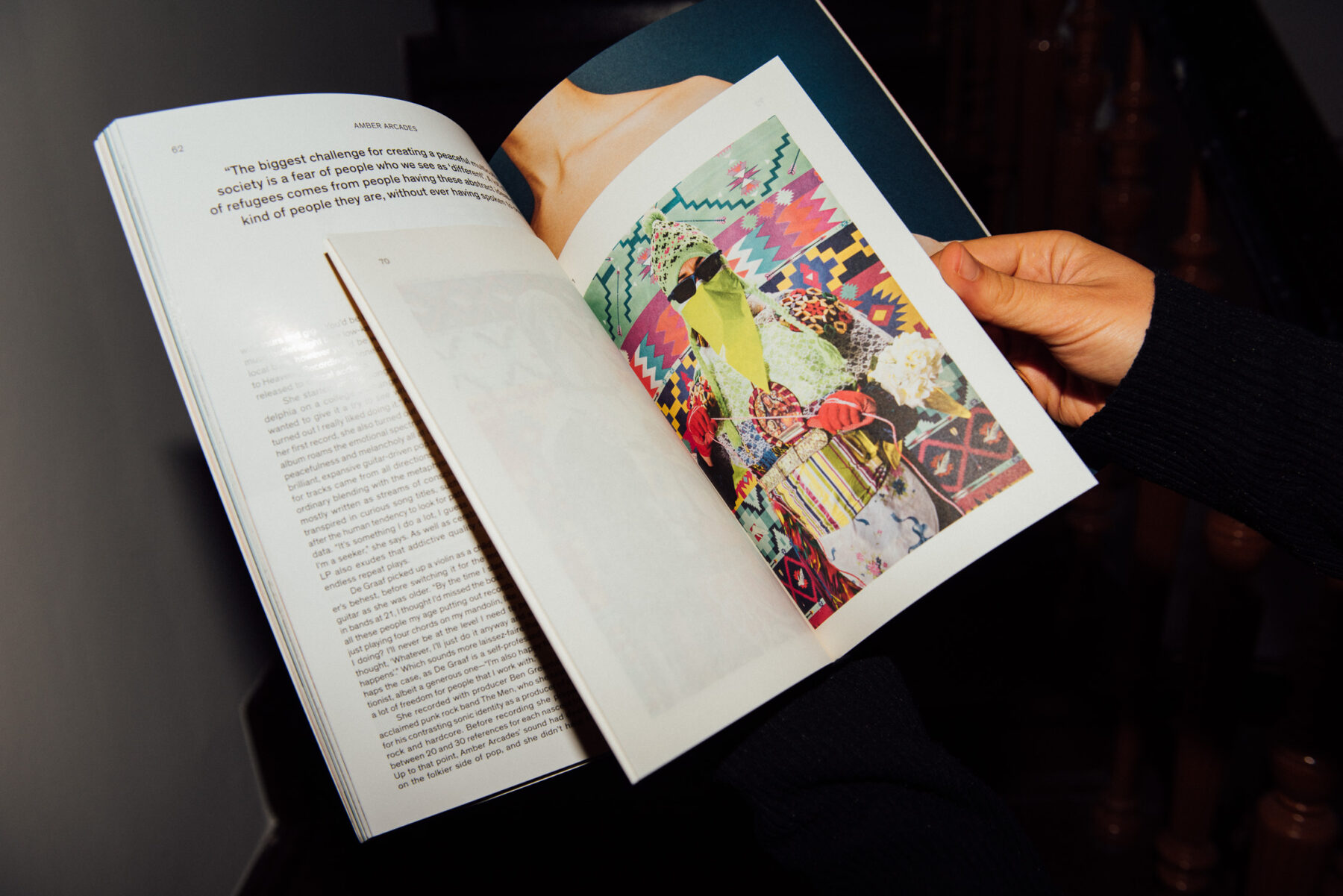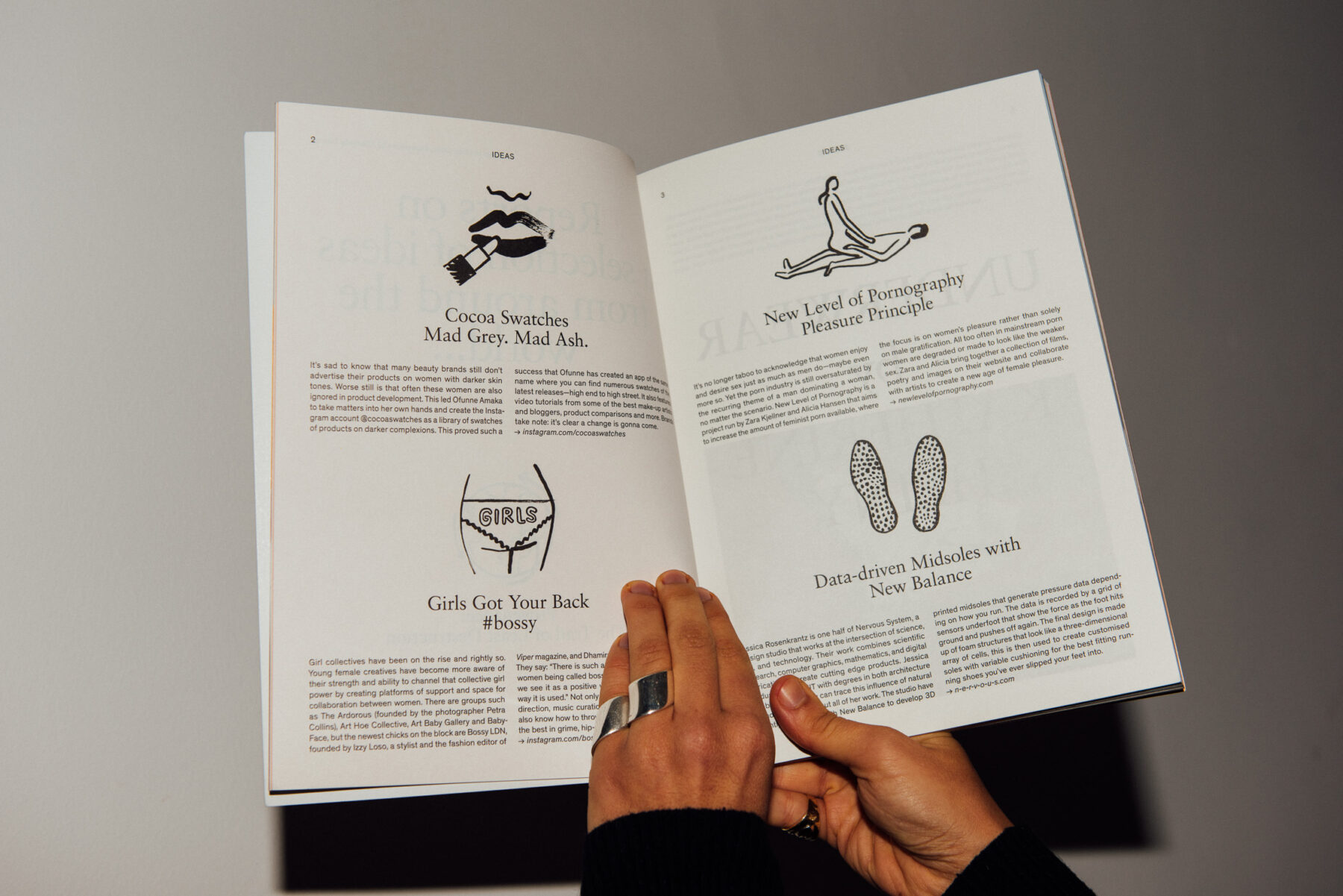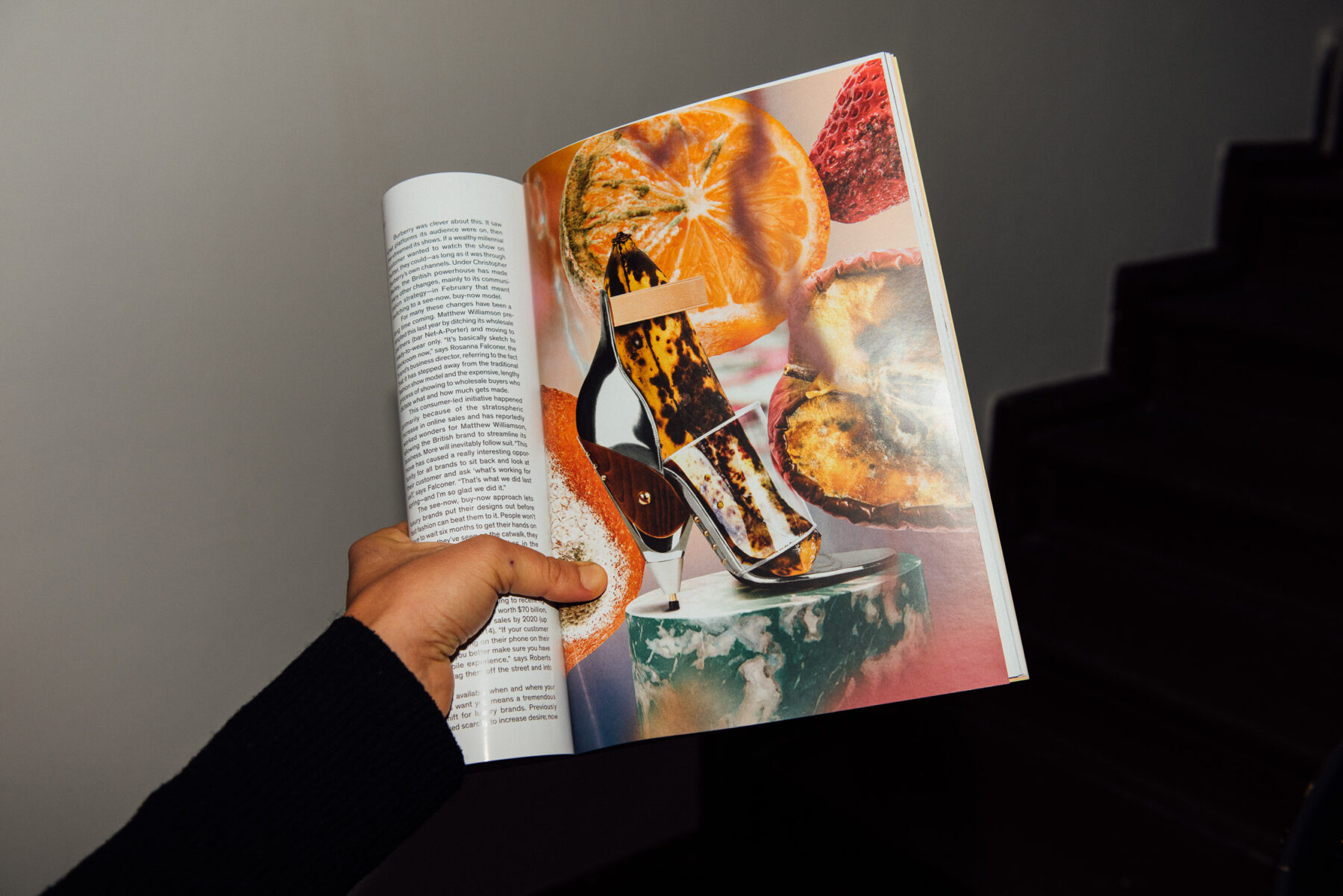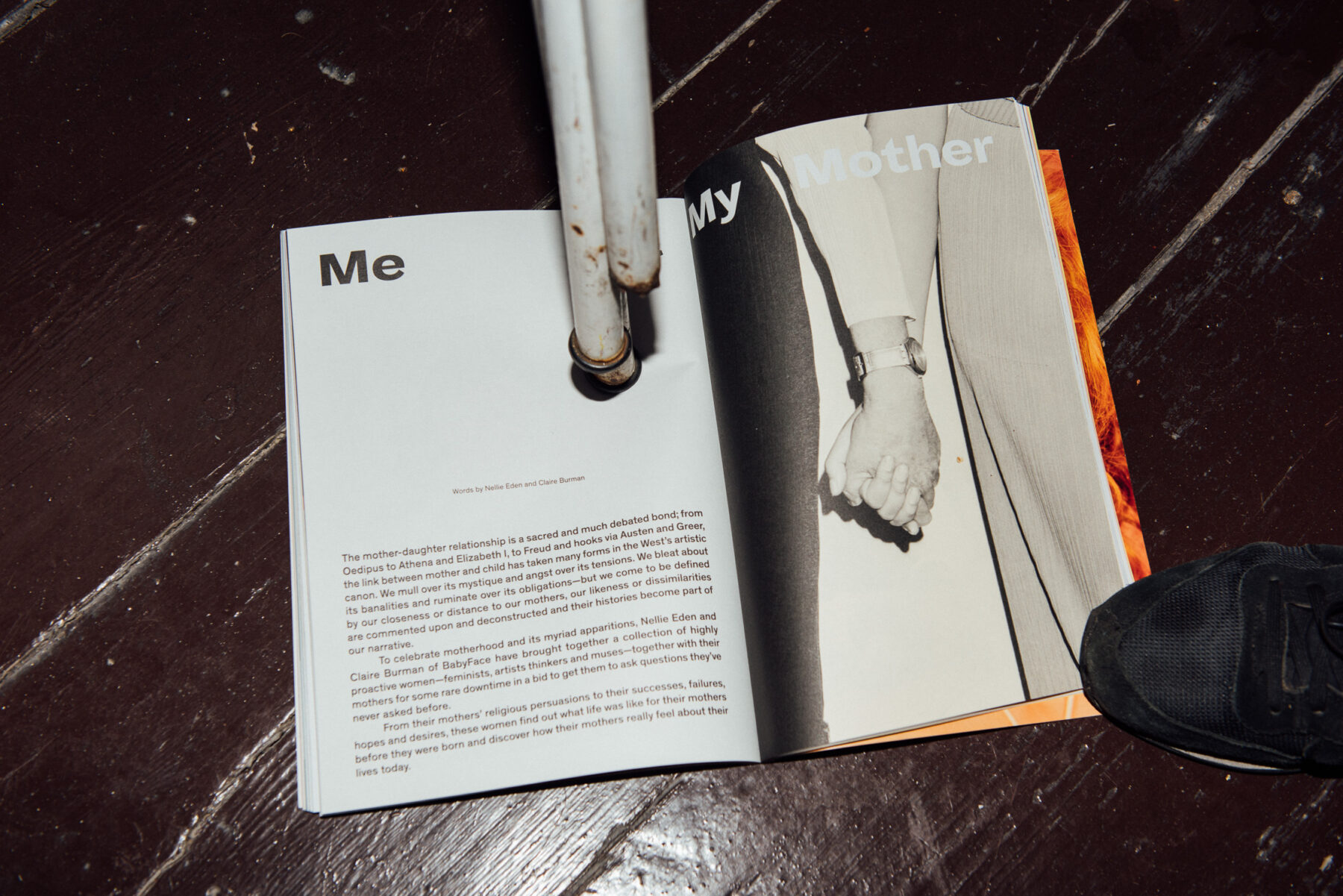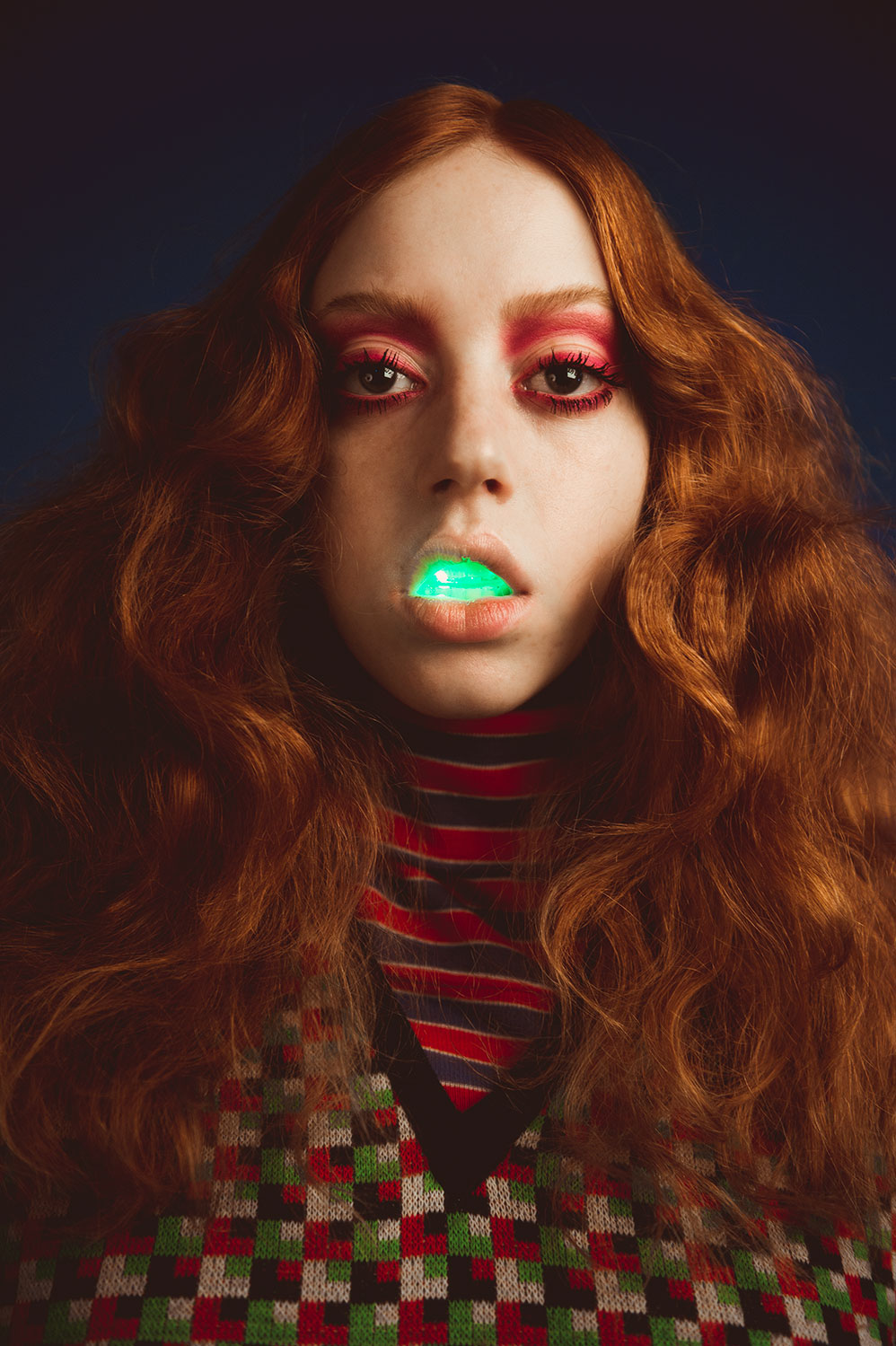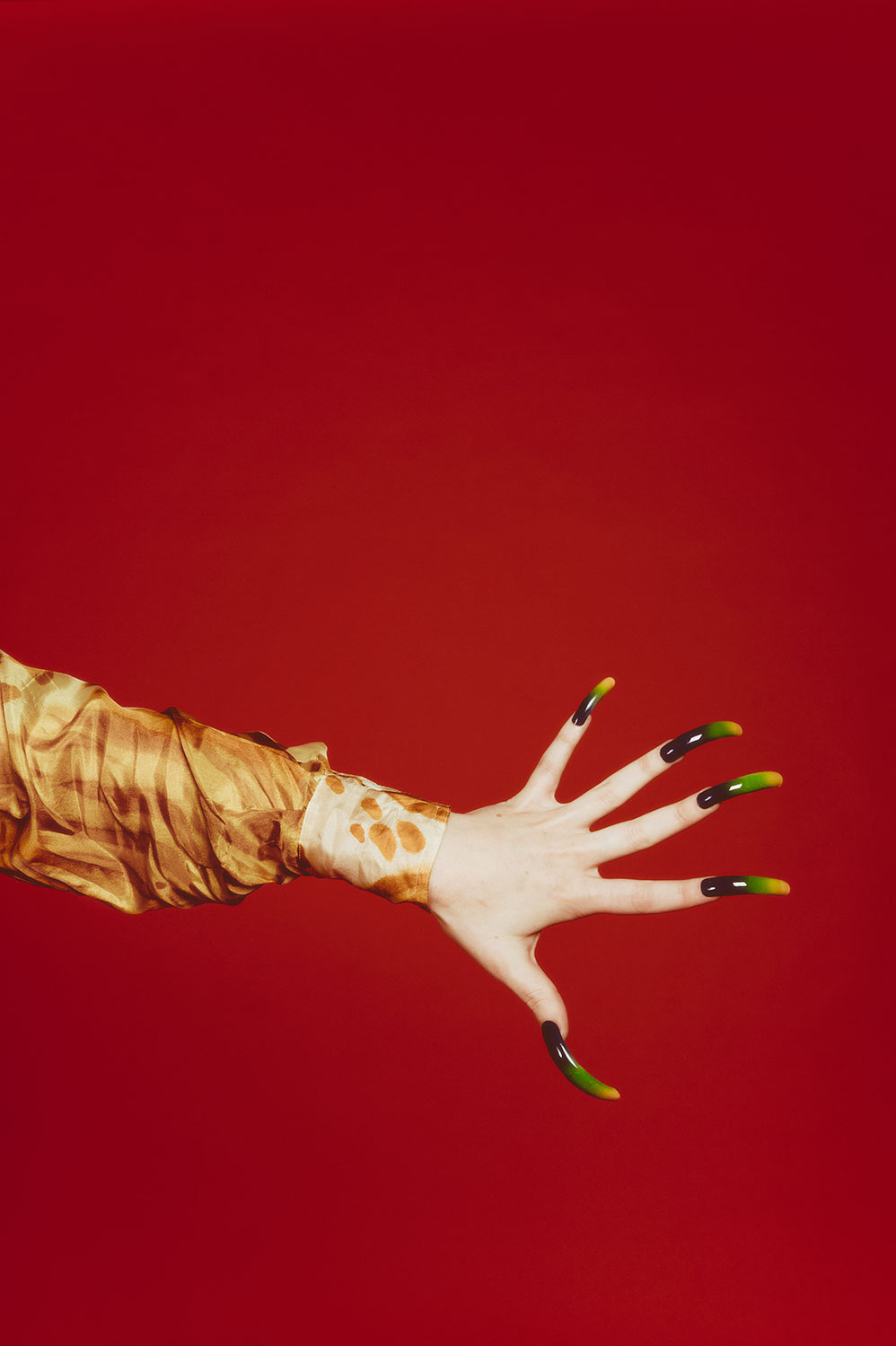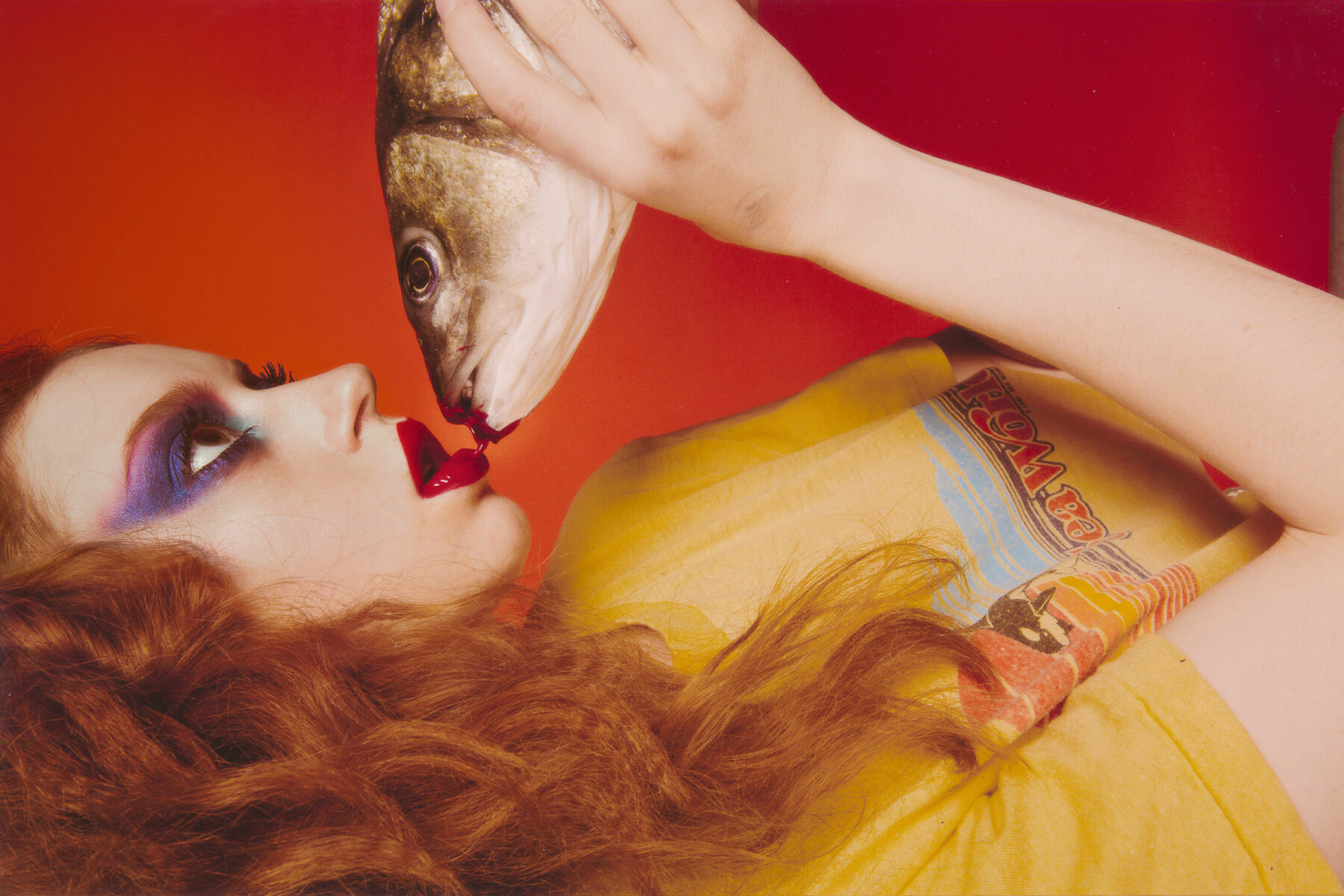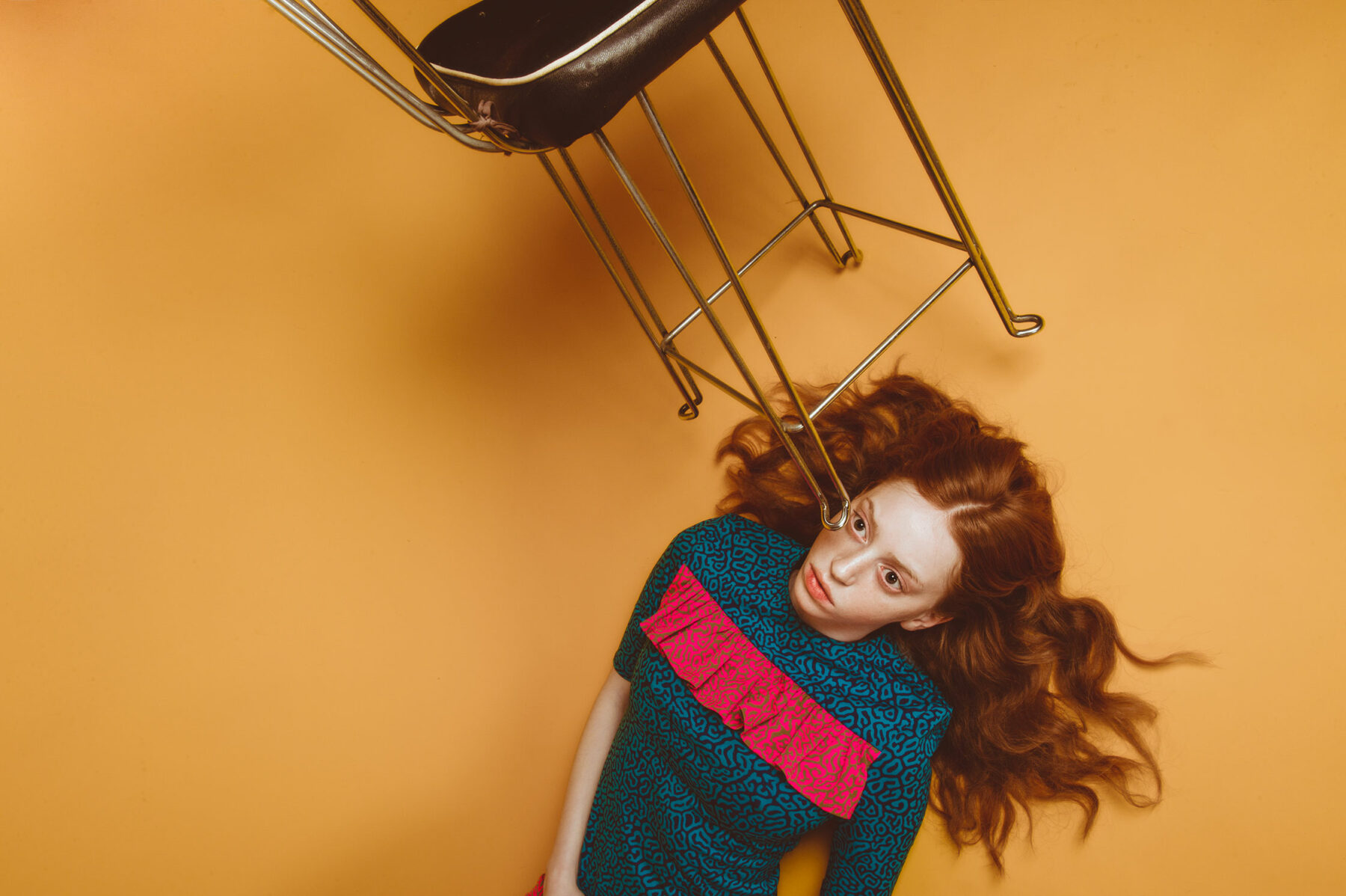“We live in very weird times. With so many huge issues, rampant inequality and injustice going on in the world it’s easy to feel overwhelmed. As if it’s impossible for one person to really make a difference,” reads Riposte Magazine’s manifesto for issue number six.
It marks, from this point forward, the publication’s dedication to being not just good, but being better—together. Three years on from its inception, the magazine’s beginnings are article fodder: Founder Danielle Pender, at an airport looking for something to read—confronted instead by glossy finishes, vacuous headlines, and touched-up cover stars—observes a very obvious gap in the newsstand. Enter Riposte, ‘a smart magazine for women’: a publication dedicated to spotlighting issues and women across the disciplines. As for cover stars, there have been (up until the surprise dual covers of issue 6, one of which featured an image of Claire Barrow), unusually none—instead, Riposte’s minimal, typographic covers are a bold splash of color with just the names of those featured in the issue.
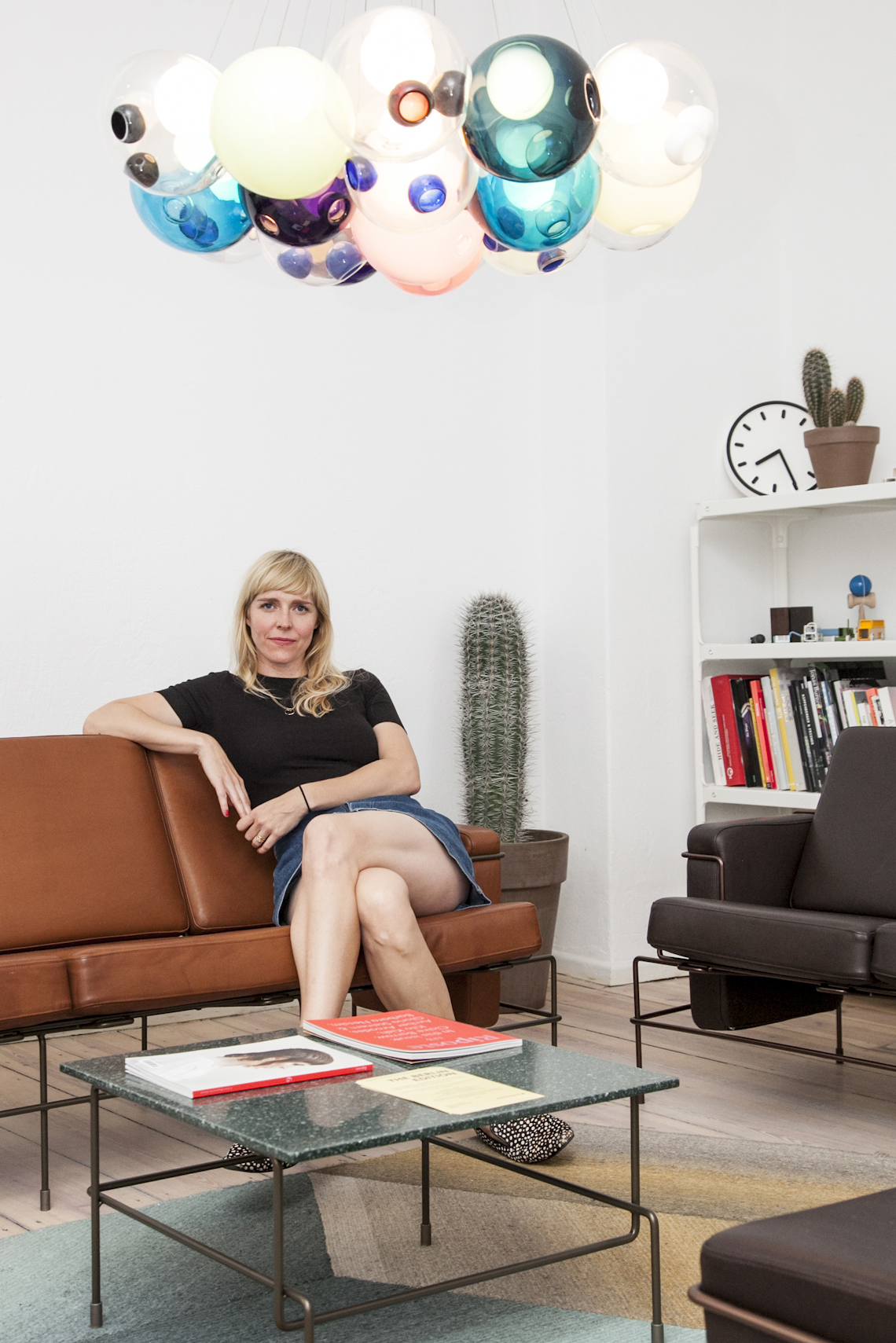
A mum to the “still really mini” almost two-year-old Mazzy, Danielle’s week oscillates between two days at home with her daughter, two days as a curator at KK in London, leaving one day a week to the gargantuan task of not only of putting together Riposte, but in spearheading the magazine’s expansion to make more space for the full spectrum of women. As of 2016, Riposte stepped out of its pages and into the physical realm with a monthly ‘Riposte Presents’ events series, a live and intimate extension of the magazine’s ethos. “It’s an opportunity to broaden out the content and broaden out the people we speak to so rather than it always being linked back to the issue. It’s about making it as friendly and as laid back as possible so that people feel comfortable,” says Danielle. The themed events might be panel discussions, talks or travelling meet-ups that take the magazine abroad to meet international readers and the local like-minded. One such event was ‘Riposte: The Berlin Edition’.
Hosted in the FvF Apartment, the event centered around talks with four admired Berlin-based women—artist Sarah Illenberger, curator Laetitia Duveau, designer and environmental activist Fa’ Empel and independent magazine purveyor Isabell Hummel. Post-talks, we sat down with Danielle to discover how this magazine founder’s determination has resulted in both a successful print publication and an engaging roster of global events.
“The one thing I hate is cynicism, everyone should embrace younger generations!”
-
Let’s start from the beginning, where did you grow up?
I grew up in the North East of England in quite a small place. The school that I went to, well, it was a bit rough. I always remember that I was super ‘lad-ish’ in the classes that I was in, the boys were really boyish and it was really sexist and at the time I didn’t really register it. I think all of the girls did stuff to get the boys’ attention. It was like ‘boys are cool’ and ‘girls are lame.’ I really remember that and I’ve been thinking a lot about that recently because I’ve got a little girl. Like, that’s just not the case and I really hate thinking about that because I think about how different things should be. Girls shouldn’t think that what they do is lame, or what they want to do is lame.
I do think the younger generation today is a lot more switched on. The one thing I hate is cynicism, everyone should embrace younger generations, just because they’re into something weird or some random music, or you don’t understand what they’re into, that’s a good thing, they’re changing things. They should be encouraged and they should be doing fucking weird stuff!
-
With Riposte, KK and being a mother, you’ve got a lot on. Can you tell me a little about that?
Yeah, I’ve kind of struggled with it for ages and have thought, ‘Oh if I just had more time on the magazine’, ‘This is kind of bullshit and I need to get more childcare,’ But actually I’ve kind of come to the realisation that she’s only going to be this age, this tiny, for maximum another year and then that’s it! So I’m just going to ride it out and it’s actually a real treat, she loses her mind with excitement over the tiniest things. You can’t be cynical around a toddler because it’s just like, ‘Look at how excited she is!’ Not everyone is as lucky, some women have to go back to work five days a week—and that’s just the way it is.
-
How then, has your role at Riposte changed in the last few years?
When we started off we didn’t have that great a pool of writers and contributors so I think I wrote four or five pieces in the first issue but there’s much better writers that me out there. I think you’ve got to recognise what your strengths are. I really enjoy writing but I think journalism is a real skill and interviewing is a massive skill. You can have a conversation with someone but, I think there’s a difference between always having in your mind what the point of the interview is and not just ‘this is interesting.’ When you read an interview by someone who’s really good at what they do, they pull out such fascinating things, and that’s not my skill.
-
How did the ‘Riposte Presents’ event series began?
We have a sort of ‘Riposte’ tone to the event but then invite different people from different industries that might not feature in the magazine. It’s been really good, so it’s either individual presentations or panel discussions. I think you also get a different experience or understanding of people when you see them at an event because when they’re on a written page people can seem really professional and really ‘with it’ but there’s a vulnerability to people at an event and you can relate much better.
“Girls shouldn’t think that what they do is lame, or what they want to do is lame.”
‘Riposte Presents: The Berlin Edition’ at the FvF Apartment
Four women, four stories
Artist Sarah Illenberger talked us through her ever mix-media activities of 2016. We learned that it takes a village to decorate a camel (In Morocco, for Vogue), saw woven animals as installations for Hermes, and heard about a concert during her residency at the Tuscan Villa Lena with musicians Ayumi Paul and Alexis Georgopolous playing on instruments made of plants.
Designer and Environmental Activist Fa’ Empel shared the personal story of her path from Indonesia to Berlin founding label Pawaka, hiccups and all.
Laetitia Deveau shared awkwardness of late blooming teenage years, navigating the music industry as a young female and how these experiences compelled her to found Curated by Girls, an equal-opportunity artist platform.
Independent magazine purveyor Isabell Hummel of Soda Books waxed lyrical on a love of print (down smell of ink and paper) and surprising publications in an intimate talk.
-
What prompted the undercurrent of ‘Everyday Activism’ in issue six?
I think we got to the point with issue six where we’d profiled a lot of amazing women doing interesting and cool things and that’s great but what’s next and where’s the depth there? With so much going on at the minute, globally and politically, we felt we couldn’t just ignore that and there’s a definite shift to want to deal with bigger issues. Actually, we featured an article on Nova Magazine, that was a really radical women magazines in the ’60s and ’70s and they dealt with massive issues but in a really creative way, massively ahead of their time. That sort of inspired us that we could do more. We should be better, challenging ideas and challenging the status quo. Things are fucked up and we can’t just be writing articles about…bullshit!
-
Do you think, then, that you’ve seen a change in women’s media over the last three years—good or bad?
Yeah it’s got better definitely, I think there’s been a lot of new independent women’s zines and magazines and online magazines which is great because the more alternatives there are the better. There’s been a mind shift culturally, feminism had become a buzzword and a lot of people now are identifying as a feminist and they’re not embarrassed about that, like with Beyoncé making a stand and Amanda Stenberg and other younger actresses talking about big issues. The media are sort of catching up with that. I do think though, that sometimes it is a bit cynical and there’s not much substance.
Going back to an event we had in London, Christina Scharff, an academic from Kings College, talked about how individual feminism is all well and good but it kind of takes the responsibility away from larger society and the government, so then policies don’t change because everyone’s focused on, ‘Well it’s your responsibility to make your life better and aim higher.’ That said, however young girls get into it, that’s not a bad thing, but there needs to be deeper conversations. It can’t just be fucking ‘free the nipple’ and like, pubic hair. There are much bigger issues globally that are affecting women than that and actually they’re not being talked about and the things that are getting talked about are taking away from the bigger issues. On the whole though, I think things are going in the right direction, which is really positive.
“Things are fucked up and we can’t just be writing articles about…bullshit!”
“If you can’t see all these women in these different disciples then where’s your inspiration?”
-
In issue six, Mary Joyce, the founder of Meta-Activism [a resource for online activism] speaks about her dislike of grading activists and the very exclusive, ‘sour grapes’ term ‘slacktivism.’ I can’t help but draw a parallel here to the at times critical dialogue around modern feminism.
It’s tricky isn’t it? One of the women in that feature was Charlie Craggs. She’s a trans activist and she does nail art; she calls it ‘fabulous activism.’ It’s very much one on one, she does these workshops and she’ll talk to people and give them a personal insight into the life and the issues of the trans woman and she feels that she’s really making a difference. She doesn’t identify with pavement pounding, banner bearing activists, that’s not her thing. I think you can find your own way and you can make a difference your way. People become more aware and if it makes a difference to a few people then that’s a good thing, but then also there’s the argument that, ‘Yeah people are aware but they’re not fucking doing anything.’ Not everyone is going to massively change their actions but if it makes a difference to a few people… yeah…maybe you’re not going to get a massive shift whatever you do. It’s tricky and I don’t know the answer.
-
What do you want to see more of in women’s magazines?
I think a broader range of topics. You can pick up any magazine and it’s kind of cut out, identical, respun—and where are the fucking articles on raising finance for your business or like entrepreneurial articles? It’s kind of tricky, big magazines they have to make a certain amount of money, I get that, they have targets they have stakeholders, advertisers that they have to keep happy…but I don’t think that women, especially now when things have changed so much—and young women are so savvy and so switched on and so independent and driven—that it’s patronising to say that they would only what to read about fashion and beauty, a really small sliver of life. It’s just perpetuating a stereotype. And there’s that classic—I think Gloria Steinem said it—and it’s a bit cheesy but it’s that, ‘If you can’t see it you can’t be it.’ If there’s not the role models in science and sport. If you can’t see all these women in these different disciples then where’s your inspiration?
Thanks Danielle and the Riposte team for coming to meet Berlin. Follow all the magazine’s movements here. Read our past interviews with presenters Sarah Illenberger, Fa’ Empel, and Isabell Hummel and keep up with Laetitia Duveau on Curated by Girls. For more on the world of publications, check our Print Matters section.
Photography: Daniel Müller, Steph Wilson, Caroline Fayette, Phillippe Duval and Robert Rieger
Text: Ruby Goss
